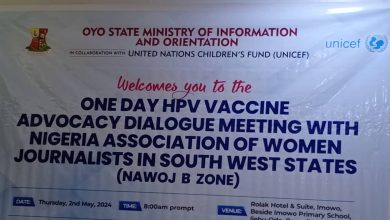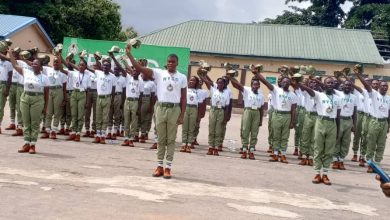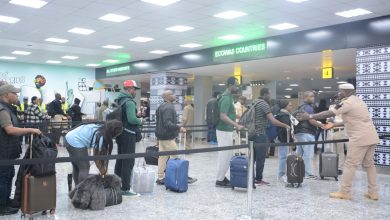Nigeria’s Aviation Sector Needs a Proactive Approach to Human Capital Development, Experts Say

Aviation Professionals say, the industry is facing a critical shortage of skilled professionals, warning that a lack of human capital development is putting the sector’s safety and efficiency at risk.
The professionals who stated this at the Aviation Safety Roundtable Initiative Business Breakfast Meeting in Lagos, emphasized the critical need for prioritizing human capital development, stressing its pivotal role in career advancement, stability, and ensuring safety and efficiency.
The Aviation Professionals advocated a robust strategy to cultivate talent, underscoring its potential to streamline operations and bolster the Nigerian aviation sector.
According to Boeing, Africa faces a shortage of 67,000 pilots, technicians, and cabin crew, deepening existing manpower challenges.
Speaking on the theme: “Manpower Strategy Training, Succession, and Human Capacity Development in the Nigerian Aviation Sector,” the professionals highlighted the pressing issue of replacing retiring personnel with skilled individuals, noting the disconnect between training efforts and employment opportunities.
The presidents,Nigeria Air Traffic Controllers Association and the National Association of Aircraft, Pilots, and Engineers, Mr. Yomi Agoro and Mr. Abednego Galadinma underscored the scarcity of controllers and the negative impact of expatriate dominance in the industry.
“We have about 400 air traffic controllers if we have 150 to 200 more and then we have how many airports now, running into almost 30 plus. The airlines are always interested in poaching and getting ready hands which is not a strategic national interest”.
Former Director General, Nigeria Civil Aviation Authority, Mr. Benedict Adeyileka, stressed the need for a proactive approach to human capital development.
“You have to train the trainer but very expensive, if you think training is expensive, please, try accident or incident”.
However, Dr. Gbenga Olowo and Mr. Nnamdi Udoh lamented the lack of implementation of existing policies on human capacity development within the industry.
“Implementation is necessary, let’s say for instance, every state would sponsor one pilot to basic pilot training. If you don’t train, what are you doing, you are planning to fail tomorrow. You must plan for those who would take over, succession planning and you cannot plan with a guy you have not trained. We must keep investing in human capital”.
Former Rector of Nigeria College of Aviation Technology NCAT Zaria, Captain Samuel Caulcrik called for collaboration among seasoned trainers and aviation experts to address sector challenges effectively.
In his opening remarks, the ASRTI President, Air Commodore Ademola Onitiju retired said, the ART believed that human resources development in the Nigerian aviation sector should integrate modern technology, cyber security, Artificial Intelligence, innovation and data analysis together with state of the art aeronautical and navigational aids.
“It is our view that the optimisation of processes, efficient use of resources would promote seamless coordination between the operators and the ground handlers, caterers and cleaners”.
Discover more from Radio Nigeria Lagos
Subscribe to get the latest posts to your email.




